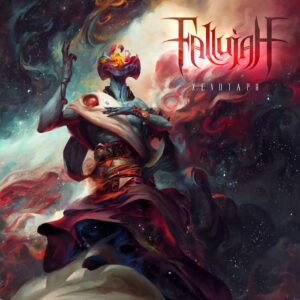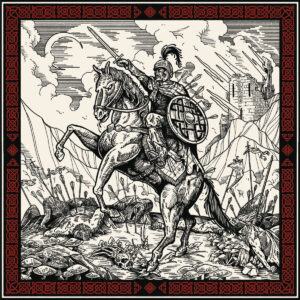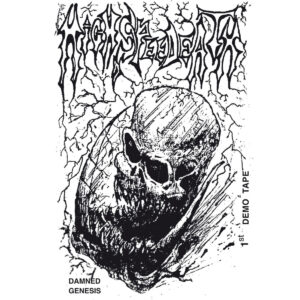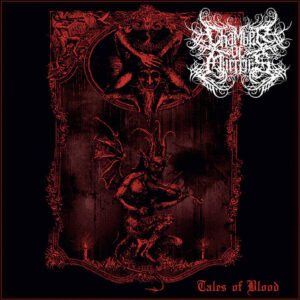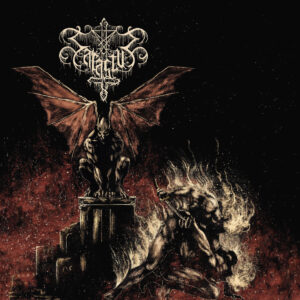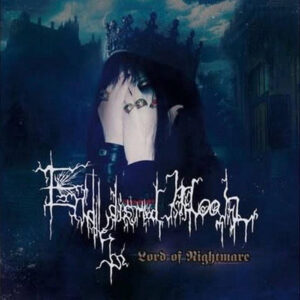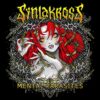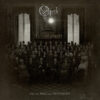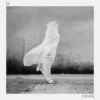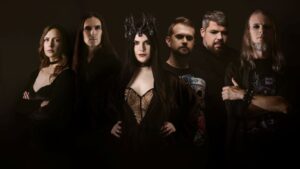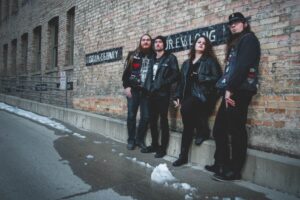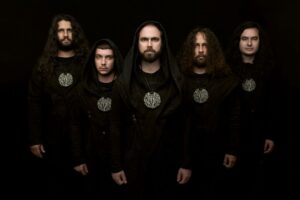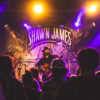Obarsie
Sur Austru
•
February 15, 2021
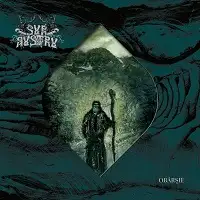
The idea of black folk metal is still a bit unusual. Add into it a firm foothold in Eastern European culture and an unfamiliar language and the unusual becomes completely unique - becomes Romania's SUR AUSTRU. Their second album, "Obarsie," is the follow-up to 2019's "Meteahna Timpurilor." The title, according to the band's Bandcamp page, is the Romanian word "representing the concepts of origin, descent, and source, whether it is the source of water in the mountains or an initiation ceremony."
The lightly strummed guitar that opens "Cel din Urma" ("The Latter") is so evocative and has that minor-key traditional Eastern European sound (that melody comes up throughout in various forms as well). When the blast beats start, it becomes orchestral - that same keyboard melody is then picked up and changed a bit by the guitar. Their melodies throughout consist of just a few repeated notes, but the combinations of those notes are potent. The mix is dense, a wall of sound, but it does work, although here, Kati's vocal could be louder and more defined. The accompaniment from Cadariu's flute is like a chant, building ever so subtly in intensity - it's a little twitter but it manages to not get lost in everything. When the keyboards pick up its melody, they make it stately and massive. Later it backs off a bit as Kati's harsh vocal and a drift of melody grows in tempo and density, adding a hypnotic to-and-fro guitar melody, then quieting again with a single haunting drumbeat and piano. Nadaban's drumming is really well done, full of variety and completely appropriate for the section it's in. Farther in, a section of blast beats and clean vocals has a cold, chilling beauty, as does a dissonant but brief high guitar solo - another lower-pitched guitar solo slips into the mix, then the solo guitar takes over rather impressively. All the layers peel away at the end to a spoken section with the melody hushed behind it and it gradually dwindles to just the speaker - it has a storytelling or shamanic quality to it. It's a long track, but it never loses you.
Cadariu attacks his flute indelicately in "Taina" ("Mystery") and that's a good thing - he gives it a percussive, tremulous, throaty quality, playing just sounds rather than an actual melody. The tension skitters on your skin, with a single vocal, the flute, the wash of programming adding to that anticipatory feeling. Blast beats and guitar pick things up nicely, and another simple but memorable melody insinuates itself into your brain. A segment of guttural vocals and an erratic tempo (where the drums are an effective counter-tempo to the guitar and vocal) goes back to the bookend of the same blast beat and guitar melody. It hushes down to bass, strummed one-note guitar, percussion, and a single vocal before everything lengthens out and a flute/keyboard melody takes over (Nadaban's drumming is super impressive, just changing and looping and spiraling, never tedious). That stop-and-start section with the drumming and the harsh vocal and the touches of flute is excellent - it has such a sense of dynamic and restraint, kind of droll in a way - then it effortlessly and naturally swings into a solid blast beat and flute, the harsh vocal, and that previous back-and-forth guitar melody again. Chanted clean vocals in a call-and-response and a tense groove picks up to guitar and drum madness and ends on that flute drifting away. This, too, is long but there is plenty to keep your interest.
The pure instrumental "Codru Moma" (named for the mountains in the Carpathian range in Transylvania) is a shorter blend of strummed and delicately plucked guitar (the sound almost resembles a dulcimer or some similar instrument played in that manner) and flute. It has a definite outdoorsy sound to it, as if you are in the forest, conveying a profound sense of place. It's freeform and drifting but not meandering; the melody progression is gorgeous, with very subtle, well-thought-out modulations. It returns to that initial section again at the close in a slightly higher key (how Cadariu bends the notes there is masterful). It is an idyllic, almost pastoral interlude. But "Cant Adanc" is darker, more threatening - it may begin with the same strummed guitar as the previous track, but it's a very different mood. Insistent snare drums are jagged against the guitar until they take over into a wonderful swing tempo; later, layers of choir-type vocals and blast beats are added. It gets stripped back down to a clean vocal and that punchy, lilting groove (seriously, the drumming here is stellar), then a brief section with more choir vocals and that guitar snarl, then back again, almost like a verse. Things do a 180 complete change of pace to a whispered vocal, an atonal guitar drone, and a sludgy tempo - very doomy and minor-key. I'd argue it's a bit jarring because it was one mood and then another, but it doesn't last long.
One little hiccup comes in "Caloianul," which again starts one way, with wordless vocals and percussion percolating daintily along and more of that strummed guitar. A quiet, very deep repeated vocal like a foreboding chant is joined by a high-pitched vocal on top and more of that wonderful percussion (not just drums but what might be woodblock or something similar). Then it's back to the dueling vocals and a melody that doesn't vary much at all, adding to the trance-like quality. Eerie flute and guitar break in between those entwining vocal lines, both clean and harsh, then it segues kind of strangely into a blast beat and a suspended, nearly inert tempo before a breakdown distinguished by more of Nabadan's amazing, prog-like drumming, several deceptively simple guitar solos, and layers of overdubbed vocals. It's interesting, and the keyboard part is keening and grating, but this ultimately seems a bit like two songs put together in a way that doesn't mesh especially well and it is a bit overlong.
"Ucenicii din Hartop I" ("ucenicii" translates roughly into "the disciples") throbs with bass as it begins, then an odd suspended rhythm dangles and drips off the blast beats. It resolves into a straight tempo, with layers of feedback guitar and a flute melody floating languidly above it. Blast beats and overdubbed vocals (one lower end, one higher) and a stirring keyboard melody gets beautiful and lush and dramatic when it stretches out into an almost orchestral bouncy melody and more really incredible drumming - it's joyous and cathartic, and when it adds the harsh vocals to that same bounce, it's a combination you've likely never heard before. That same flute melody and drumming as earlier returns, and the flute repeats the section the vocals did, then they join together and it's wrenchingly lovely, both rising to a crescendo before both fall to single alternating notes and close-to-the-bone harmony. The last few minutes are Cadariu's flute and Kati's programming alone - the flautist's playing is wonderful, earthy and ethereal at the same time, so those final minutes are well worth it.
Call "Ucenicii din Hartop II'' a distant cousin to Part I rather than its sibling. Harsh vocals, a wall of keyboard sound and guitar fuzz, and erratic drumming give way to a surprisingly mellow little Eastern-tinged guitar melody. Those same layered vocals, the harsh and the clean, do hearken back to Part I. The blast beats might be chilly, but that guitar melody adds warmth in its quiet way and roots the song, acting as a touchstone. The bridge is harsh vocals and a guitar melody a bit reminiscent of part 1, and it fades out on variations of that warm melody/tone, the guttural vocals, and still more fabulous drumming. Nabadan is a really hidden talent, unobtrusive but unmistakable - your ears constantly return to him.
"Obarsie" is unusual and challenging and exotic, familiar at times, but at times completely unfamiliar, and that is its great strength.
8 / 10
Excellent
Songwriting
Musicianship
Memorability
Production
"Obarsie" Track-listing:
1. Cel din Urma
2. Taina
3. Codru Moma
4. Cant Adanc
5. Caloianul
6. Ucenicii din Hartop I
7. Ucenicii din Hartop II
Sur Austru Lineup:
Kati Tibor - Vocals, Guitar, Keyboards
Florea Mihai - Guitar
Corodan Ovidiu - Bass
Cadariu Ionut - Flute
Nadaban Sergiu - Drums
More results...
